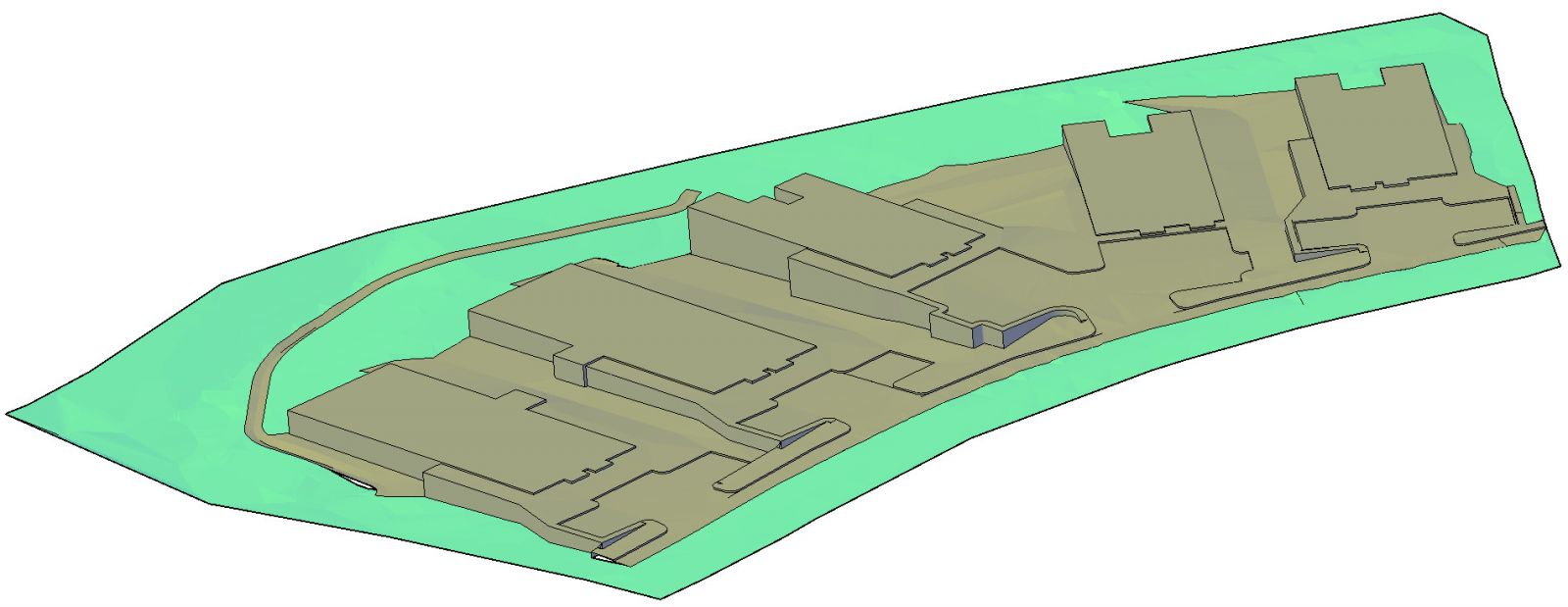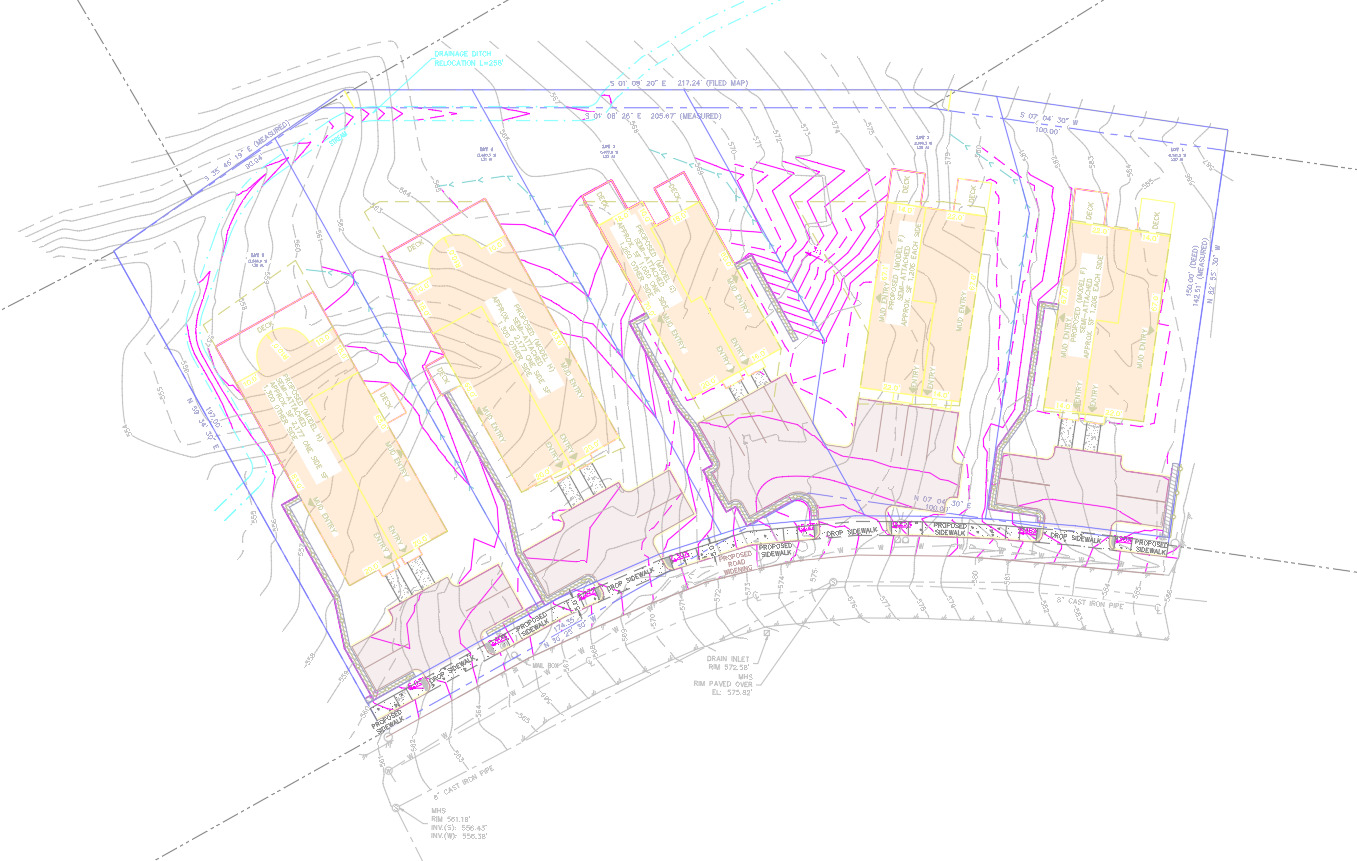
In the dynamic realm of civil engineering, staying ahead of the curve is paramount. As the industry demands greater precision and complexity, it's crucial to adopt cutting-edge tools and technologies. In this blog post, we'll delve into the world of modern grading and drainage services, highlighting the profound impact of advanced technology. Brigen Consulting, a distinguished leader in civil engineering outsourcing services, stands at the forefront of this transformation, ensuring that civil engineering projects are optimized for efficiency, sustainability, and cost-effectiveness.
The Changing Landscape of Civil Engineering
Civil engineering revolves around shaping our physical world, encompassing the design, planning, and management of various construction projects, from bridges and roads to buildings and water systems. Grading and drainage stand as foundational components, ensuring proper land preparation and efficient water management.
The Significance of Modern Grading and Drainage Services
Modern grading and drainage services play a pivotal role due to several critical reasons:
- Flood Mitigation: These services effectively prevent flooding, safeguarding lives and property.
- Infrastructure Longevity: Well-executed grading ensures that structures rest on stable ground, thereby extending their lifespan.
- Environmental Responsibility: Modern solutions aim to minimize the ecological footprint of civil engineering projects.
The Influence of Technology
Modern grading and drainage services capitalize on advanced technology to elevate precision and efficiency. Here's how technology is transforming this facet of civil engineering:
- Advanced Surveying Tools: High-precision tools like GPS technology enable accurate measurements and data collection, guaranteeing precise grading and drainage.
- Digital Modeling and Simulation: Computer-aided design (CAD) software empowers engineers to create intricate 3D models of grading and drainage plans. These models facilitate scenario simulations and design optimization.
- Remote Sensing: Remote sensing technologies, such as aerial imagery and LiDAR (Light Detection and Ranging), contribute to topographic mapping and land analysis, providing offering crucial data for grading projects.
- Data Analytics: Big data and analytics play a crucial role in managing and interpreting grading and drainage-related data. Predictive analytics aid in informed decision-making and future planning.
Site Grading Regulations and Permitting
Site grading plans must comply with zoning and building codes to ensure a safe and legally compliant project. Understanding local regulations regarding setbacks, height restrictions, and environmental considerations is essential while developing a grading plan.
Compliance requirements for grading often include factors such as erosion control, stormwater management, or environmental protection. Meeting these requirements ensures the grading plan aligns with local regulations and safeguards the surrounding environment. Legal considerations, such as protected habitats, natural resource preservation, or historical landmarks, restrict grading.

Steps in Developing a Site Grading Plan
With the preliminary site assessment and design objectives in place, the next step involves developing the grading plan. This stage requires meticulous attention to detail and close collaboration between professionals from different disciplines, including civil engineers and landscape architects.
Before developing a site grading plan, a preliminary site evaluation is conducted to assess the site's characteristics, constraints, and potential for development. This evaluation helps in identifying potential challenges and opportunities.
A thorough site analysis and assessment involve studying existing natural features, drainage patterns, utilities, environmental conditions, and project requirements. This step helps professionals fully grasp the site and its grading needs.
Environmental factors, including wetlands, protected habitats, or water bodies, can significantly impact the grading plan. Compliance with environmental regulations and integrating sustainable practices should be central to the grading design.
Common Challenges in Site Grading
Poor soil conditions, such as unstable or expansive soils, can pose significant challenges in site grading. Soil improvement techniques, including soil strengthening, compaction, or specialized materials, are necessary to achieve a stable graded surface.
Improvement techniques include addressing poor soil conditions through various methods. These techniques may include soil replacement, chemical strengthening, or mechanical compaction to improve the overall stability and load-bearing capacity.
Expansive soils, prone to volumetric changes with moisture content fluctuations, require special consideration in grading plans. Mitigation measures, such as moisture barriers, proper drainage systems, or foundation design modifications, are crucial to prevent expensive structural damage.
Outsourcing Civil Engineering Services
As technology continues to advance, it's essential for civil engineering firms to adapt and make the most of the latest tools. Outsourcing civil engineering services to experienced professionals like Brigen Consulting can be a strategic move for various reasons:
- Access to Expertise: Outsourcing firms have teams of experts who are well-versed in modern grading and drainage techniques.
- Cost Efficiency: Outsourcing can lead to cost savings in terms of technology investments, staffing, and infrastructure.
- Focus on Core Competencies: By outsourcing, your team can focus on its core competencies, knowing that grading and drainage services are in capable hands.
- Flexibility: Outsourcing firms can scale their services according to the project's needs, providing flexibility and efficiency.
Brigen Consulting: Your Partner in Civil Engineering
Brigen Consulting is a leading name in the realm of civil engineering outsourcing services. We understand the importance of modern grading and drainage in civil engineering projects. By harnessing the power of technology, we ensure that every project we undertake is optimized for efficiency, cost-effectiveness, and sustainability.
.jpeg)
In Conclusion
The field of civil engineering is ever-advancing, and modern grading and drainage services are at the forefront of this evolution. Embracing technology and collaborating with experts like Brigen Consulting ensure your civil engineering projects are well-prepared for the future.
For further insights into outsourcing grading and drainage services and other civil engineering projects, don't hesitate to contact Brigen Consulting today.


























